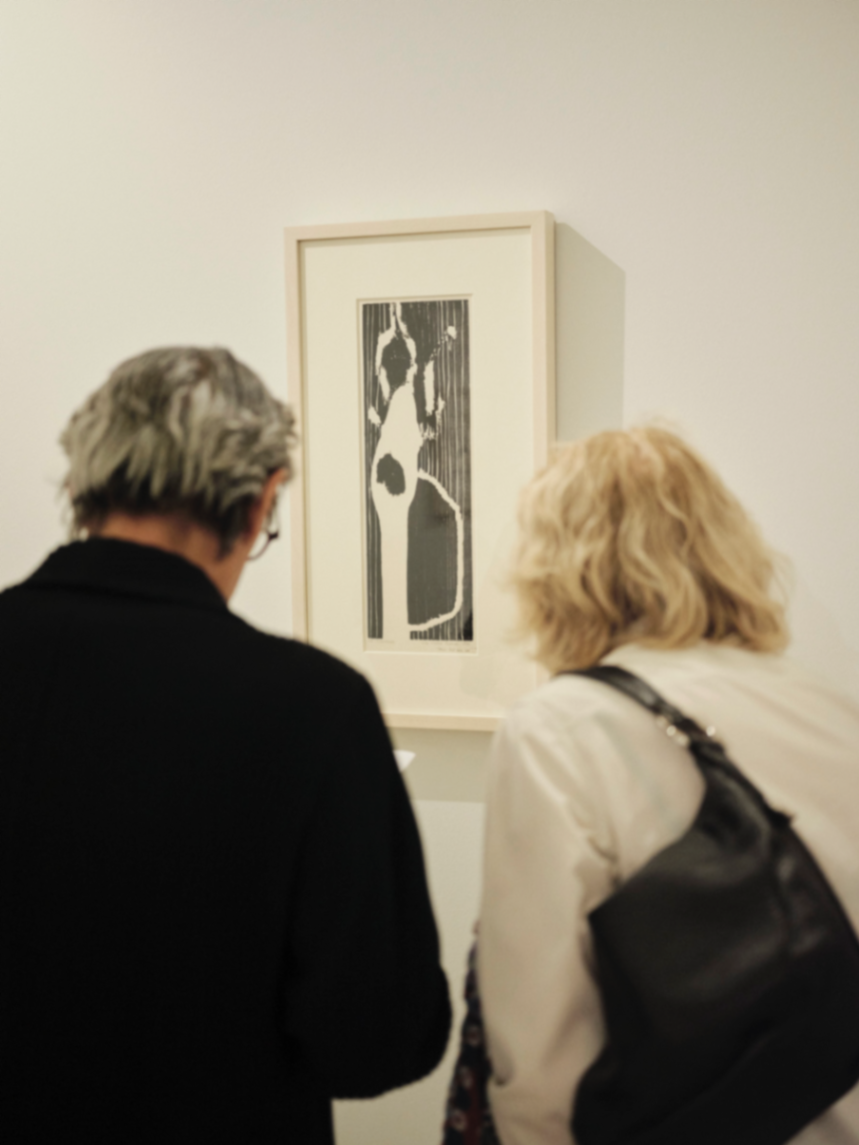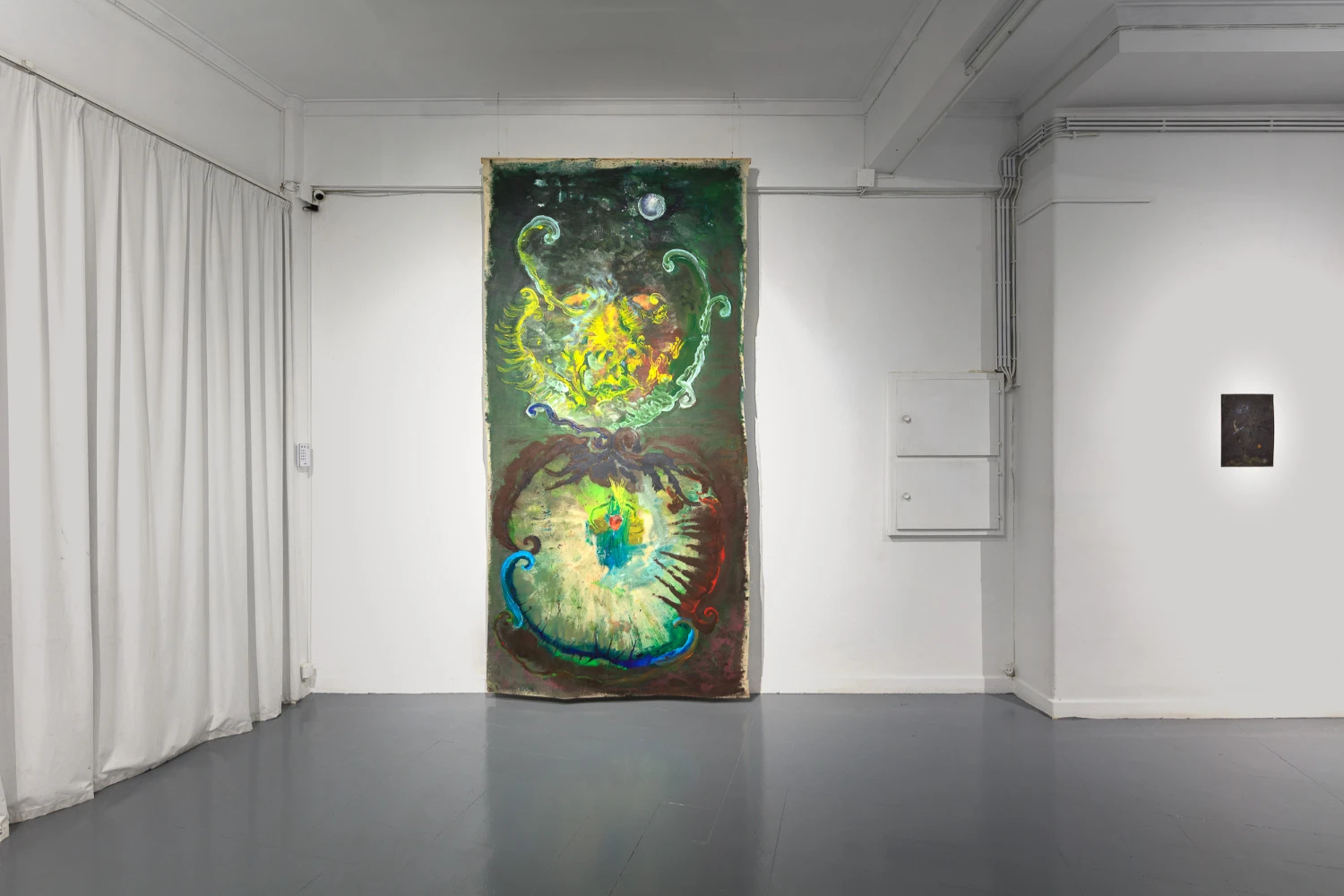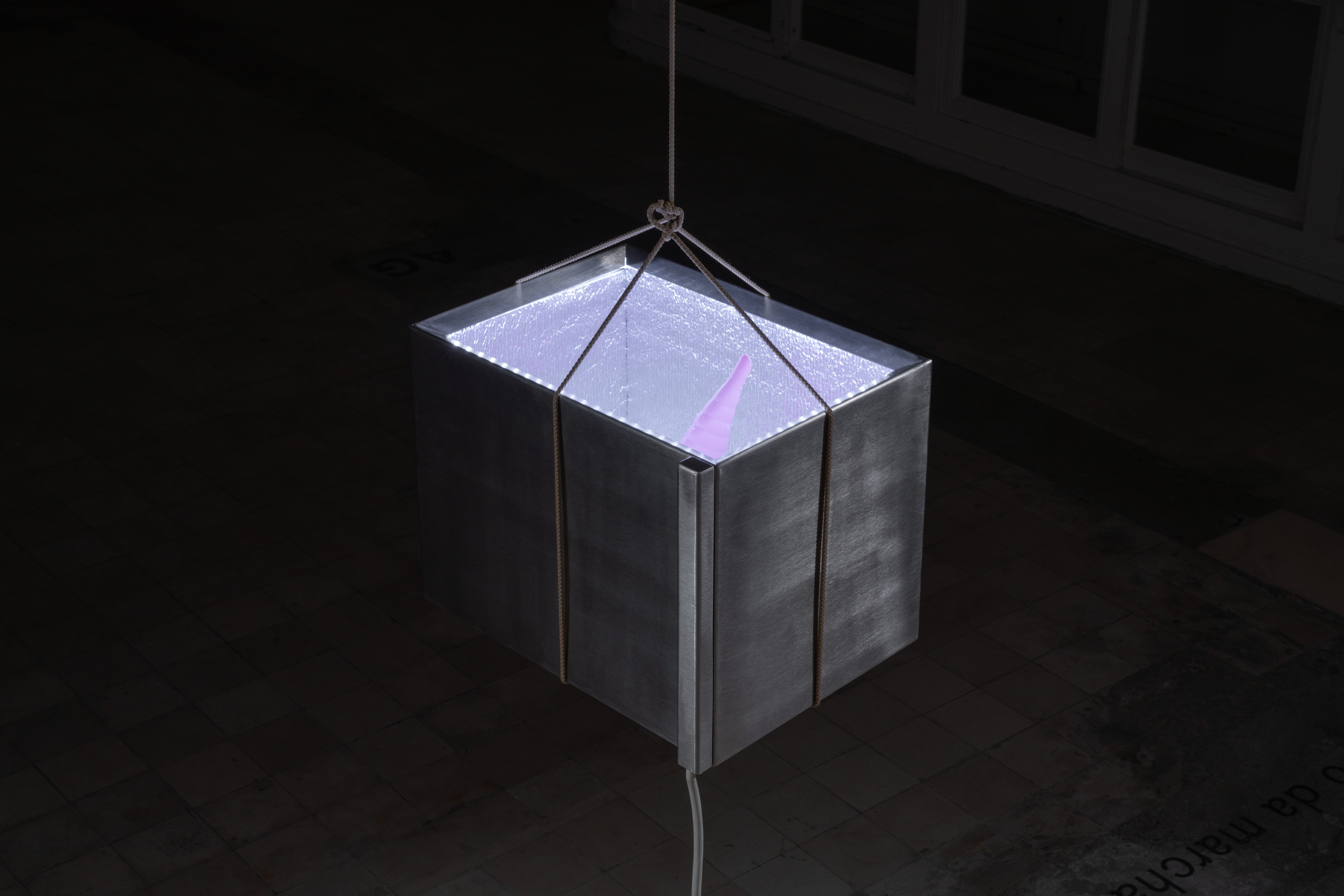article
Nem pena nem paixão: Paulo Serra at Salto
After almost two decades without a solo show in Lisbon, Algarve-born artist Paulo Serra (1965) returns to the city of light. Entering Salto on an October afternoon, the sun streams through the ceiling windows, meeting the dense surfaces of the paintings. The works usually work better when it's dark, admit curators David Revés and Nicolai Sarbib, but to me it feels like it is exactly within this contrast that the exhibition comes to breathe. The viewer drifts between affection and unease, compassion and distance.
The title of the exhibition, Nem pena nem paixão, carries the melancholy of a Fado verse. It’s also borrowed from an expression once used by Serra’s mother, who would say, when asked about her son: É um menino que não dá pena nem paixão. Meant affectionately, describing someone calm and untroubled, the phrase gains a more iconic, autobiographical notion in the context of the exhibition.
In Serra’s work, both grief and passion pulse just beneath the surface, creating portraits that defy any conventional sense. Born from the effort to remember and the inevitability of forgetting, the artist’s brushwork (sometimes precise, sometimes diffused) produces faces that hover between image-making and erasure. Serra strips away narrative excess. You can see small moments of surrender: the curve of a cheek, the uncertain gaze of a figure who might be the artist’s, a passing stranger, or no one at all. Serra's approach to self-portraiture avoids vanity or self-idealization; instead, it reveals the self as a surface, for family, history, and ghosts.
Above all, Serra focuses on the possibilities of representation through (self-)portraits and the recurring landscapes of the South. Each painting becomes a membrane of the inner and the outer. It seems as if the artist has summoned his very own pantheon: a private gallery of recurring faces, half-memory, half-myth, a balance between emotion, terror and the grotesque.
By bringing together Serra’s works of the past five years and partnering with Associação Alfaia in Loulé, Salto extends a bridge between center and periphery, Lisbon and Algarve, local and international conversations. The exhibition marks the fourth chapter of the space’s new curatorial cycle - a moment that signals a commitment to sustaining artistic production beyond the capital’s usual circuits. Serra’s own trajectory gives the collaboration a double meaning: his return to Lisbon and the encounter with a practice largely shaped on the periphery, in relative solitude and persistence.
The selection of works, curated with outstanding sensitivity and restraint, captures the peculiar Portuguese tension between introspection and resistance, between saudade and survival. David Revés and Nicolai Sarbib resist the temptation to overexplain and allow rhythm and proximity to guide the visitor. In consequence, the exhibition unfolds like Serra’s own meditative process.
The curator’s attentiveness feels so fitting with Salto’s ethos: the grounded and the aspirational, a limbo between a stabilizing heel and a brave jump for Lisbon’s contemporary art scene. Founded by Sarbib in 2022 and co-directed by Revés since 2024, the non-profit space has grown into a promising independent platform. Lisbon can look forward to many more of Salto’s saltos (jumps).
BIOGRAPHY
Dela Christin Miessen is a researcher, writer and editor. She is part of Aberta Studio in Lisbon and the co-founder of Echoes Residency for socially engaged art practices.
ADVERTISING
Previous
article
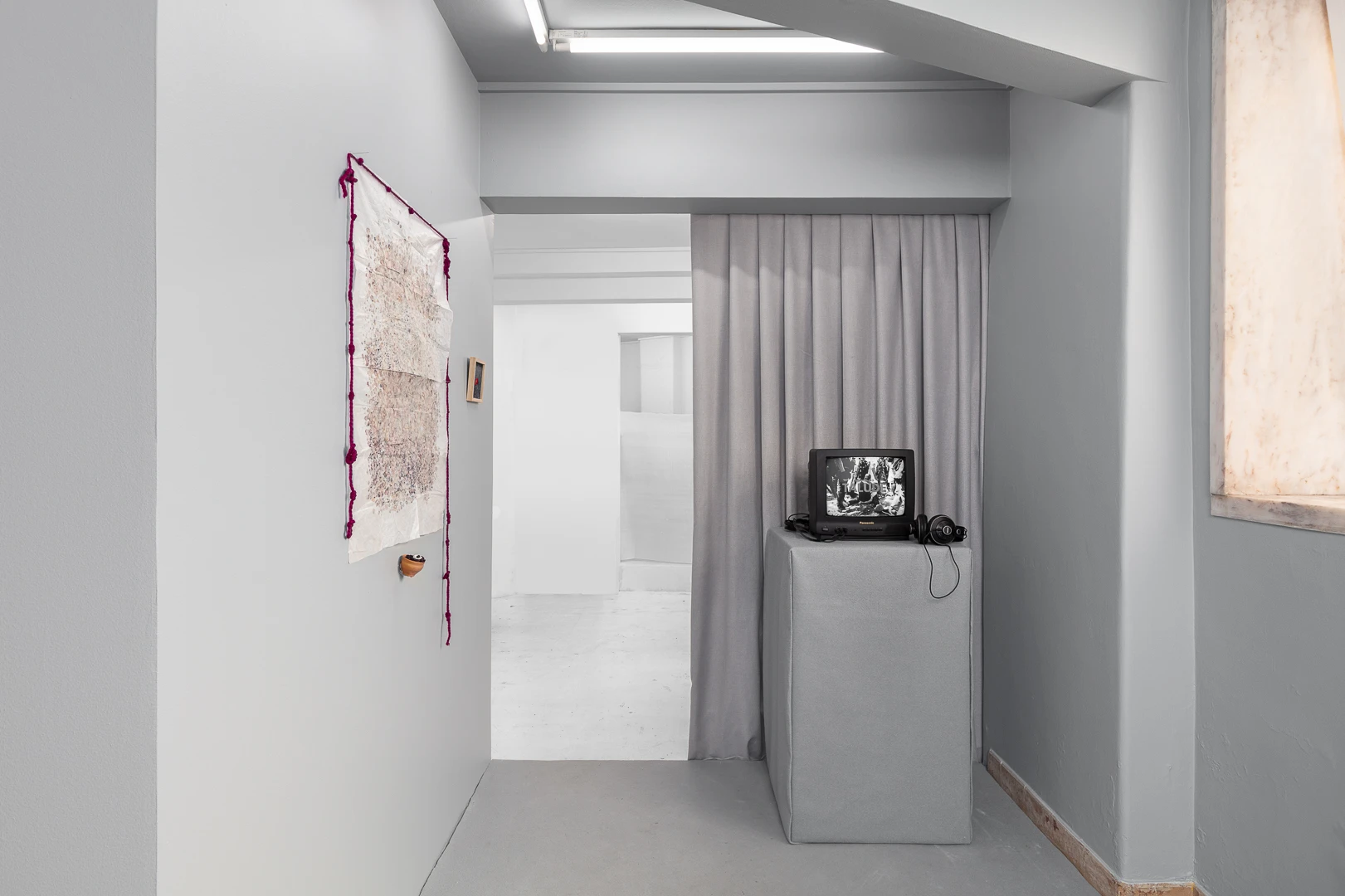
10 Nov 2025
Loop End: a knot is a promise
By Laurinda Branquinho
Next
article
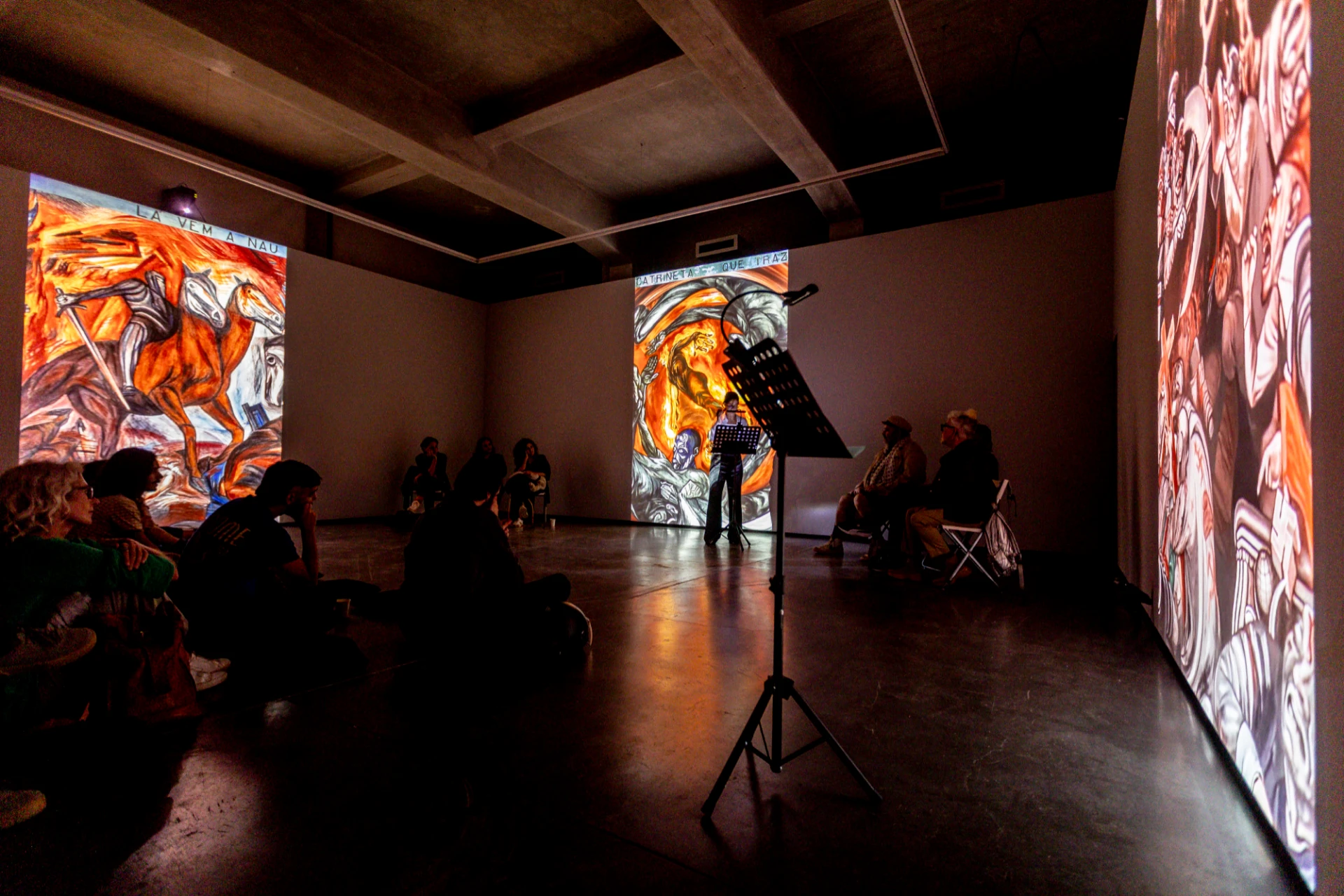
11 Nov 2025
Inhabiting an impossibility: Estaleiro Almada/Orozco by José André and Patrícia Portela
By António Figueiredo Marques
Related Posts
